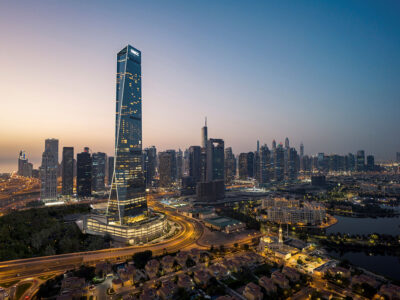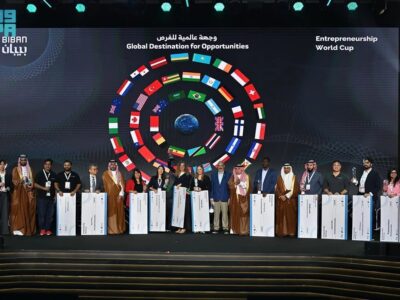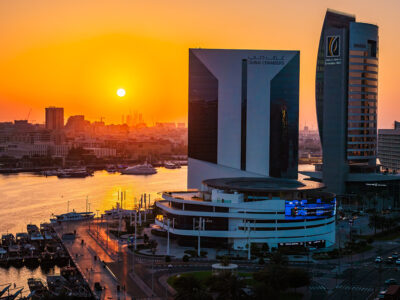In a desert region where access to freshwater is a challenge, Saudi Arabia-based Red Sea Farms has developed a technology which allows for commercial farming using primarily saltwater and solar energy.
When it comes to indoor growing in greenhouses, 95 percent of water usage goes towards the cooling system – not irrigation – and so, by using seawater instead of freshwater, Red Sea Farms saves on precious resources, explained Ryan Lefers, chief executive, who along with professors Mark Tester, chief scientist and Derya Baran, chief engineer, co-founded Red Sea Farms.
“Part of our excitement over Red Sea farms was about delivering an agriculture system that was more sustainable for the local environment because we’re primarily using salt water and sunlight as our two main inputs, both of which exist in abundance,” said Lefers.
“We feel strongly about the fact that we can deliver food without compromising our long term sustainability, especially in light of growing populations, demand and changes in consumer preferences for more fresh fruits and vegetables,” he continued.
In order to validate the technology they were developing, Red Sea Farms also became a producer, growing 15 types of produce in its greenhouses Saudi Arabia. Its most popular produce is cherry or snap tomatoes, said Lefers. Because tomatoes are tolerant of irrigation by salient water, they’ve been using a higher percentage of saltwater for its watering.
On Monday, the start-up raised $10 million in venture capital investment from Saudi and Emirati investors, enabling to test its technology and prove its validity at a wider scale, explained Lefers.
 Ryan Lefers, co-founder and chief executive of Red Sea Farms
Ryan Lefers, co-founder and chief executive of Red Sea Farms
“We’re building some new facilities and upgrading existing ones to demonstrate that the technology can work on a commercial scale; this would allow us to validate our valuation in the next fundraising round, in 12 to 18 months,” said Lefers.
The company is also working on a technology that would block infrared light thereby preventing heating in the greenhouse. “It’s a passive cooling technology, as well as energy generating so it will enable us to move the system even more towards sustainability,” explained Lefers.
Red Sea Farms is also in talks to expand to the UAE with both its technology and produce – but this is not the plan for other countries.
“In this region, we want to become both technology providers and growers. But then globally, our target is to deploy our technology to other regions because it’s been proven and validated here by us ourselves,” explained Lefers.
Red Sea Farms is looking to deploy its technology “anywhere where you have an abundance of salt water, and demand for food” said Lefers. He revealed that they are already in preliminary discussions with Caribbean island nations and other island nations in the Indian Ocean. The company is eying North Africa, southwest of the US, Mexico, Australia and South Asia among others.
“We’re so thankful to be in Saudi Arabia. At this place in time, I think vision 2030 is not just motivating us, but also lots of our peers to contribute to economic diversification, job creation, and sustainable development and so that’s certainly trickling into the agriculture sector,” said Lefers.








